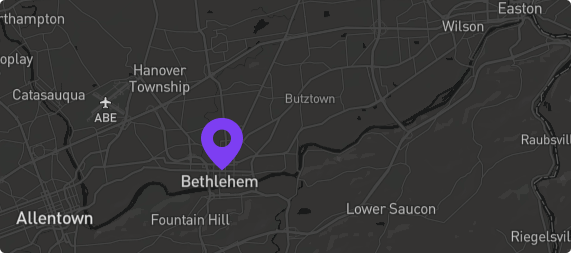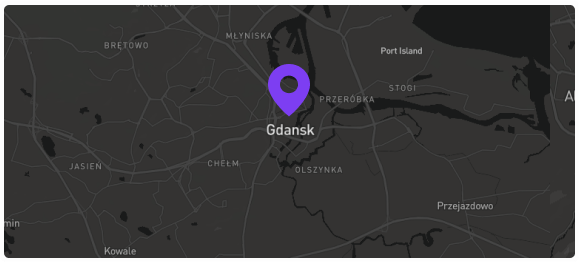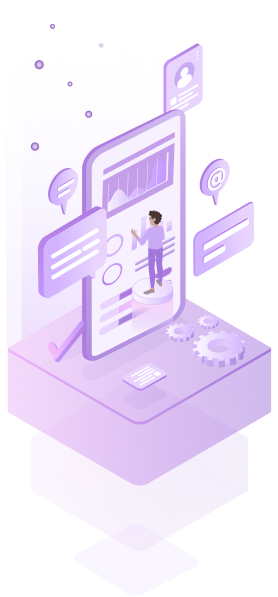At first glance, The Internet of Things concept seems really confusing. Is it just the internet that we use in our gadgets or something else? What “things” are we even talking about – smartphones and laptops? Well, it’s a little more complicated than that. But you don’t have to worry about it – we’re here to explain it all, as simple as possible! So, what does the Internet of Things actually mean, when was it invented, what are the Internet of Things examples, and on top of that,how has the Internet of Things impacted business worldwide?
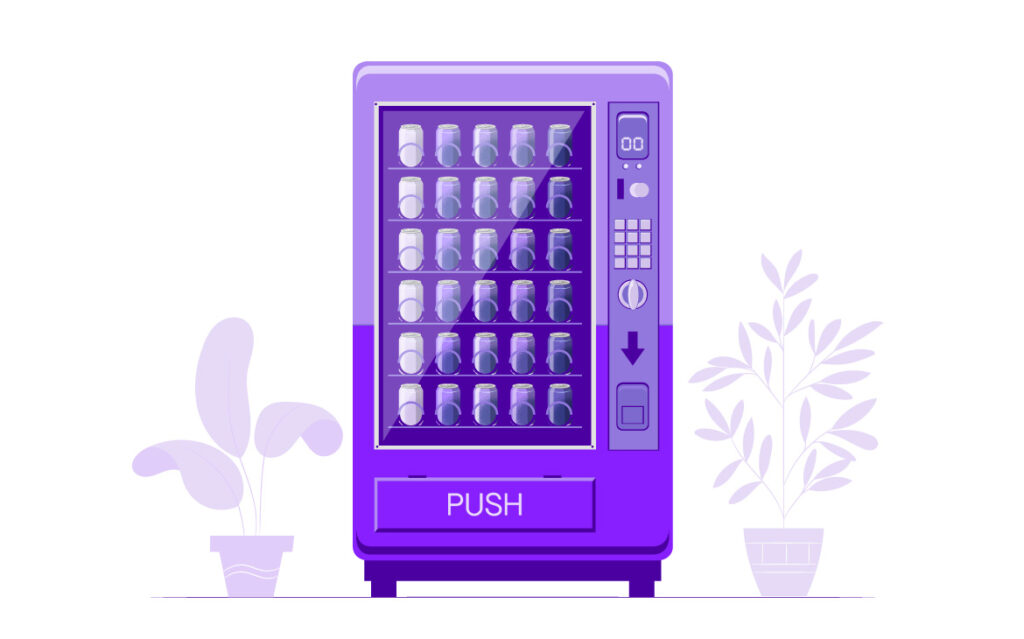
When was the Internet of Things invented?
Until recently, access to the internet was available only through our gadgets – smartphones, PCs, tablets. But now, with the Internet of Things (IoT) concept, almost every possible device can be connected to the internet. So when was the Internet of Things invented?
The idea has been kicking around since the 1980-s: one of the first intelligent devices was the Coca-Cola vending machine that transferred information about the drinks. It was a breakthrough, but still, technologies weren’t advanced enough, so the progress has stalled. However, time passed – and chips were better adapted to communicate wirelessly. The turning point happened in 1999 at the International Economic Forum in Davos – scientists discussed this automation concept that didn’t even have a name at the moment. Later in the same year, Kevin Ashton, for the first time, called these intelligent devices and processes “The Internet of Things” in his article. After that, many conferences and forums were devoted to the Internet of Things topic; many scientists worked on the process improvement. And by the end of 2009, the number of devices connected to the network exceeded the human population on Earth. Which meant the final victory of the promising IoT concept.
Over the past ten years, the Internet of Things has become a key development area. Even if you didn’t know, you definitely have seen IoT devices around you! Sounds intriguing? Alright, let’s not wait any longer. We figured the IoT invention, now let’s move to answer your next burning question!
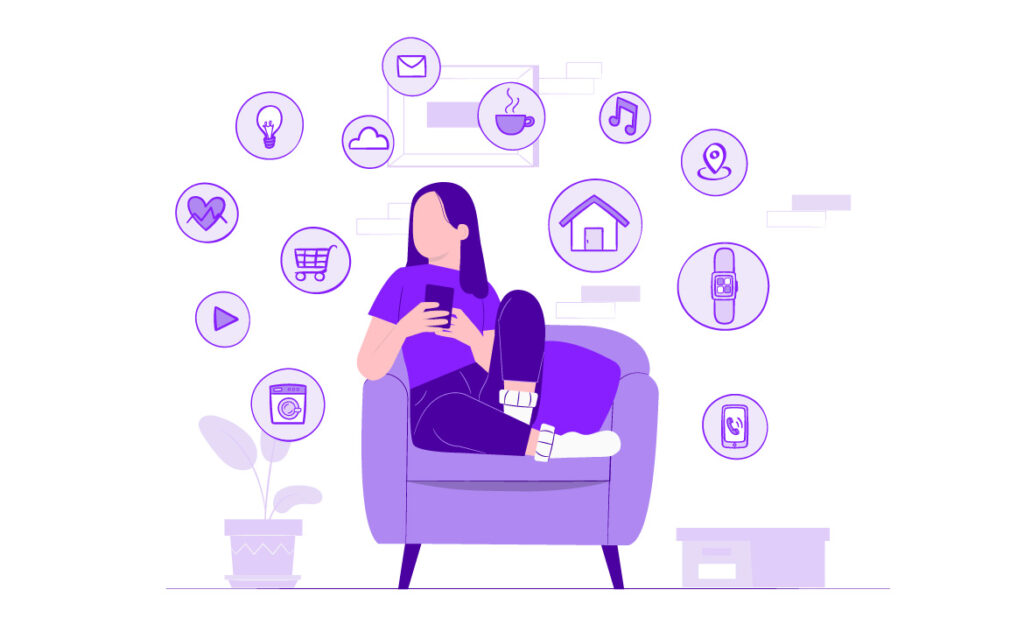
What does the Internet of Things mean?
Just imagine: you left for work, and after a while, you realized you might not have turned off the TV/ AC/ lights/ whatever else. Instead of coming all the way back home and then again to work, you can simply open the app on your phone, check the object’s status and turn it off if needed. Sounds great, right?
Well, it is possible thanks to the IoT concept.
The Internet of Things is a giant system composed of devices connected to the internet, interacting with each other. As a result, the devices receive and transfer information for these two purposes: data analysis and a more efficient and technological approach to daily issues.
IoT hardware devices can be classified into two groups:
- General devices. These are the main elements of data exchange, connected by wired or wireless networks. The best example of general devices is household devices.
- Sensing devices. They detect the external situation with sensors and actuators that measure temperature, soil moisture, humidity, and light intensity.
Both groups are connected to the internet through gateways that process the received information and transfer it to the cloud. This is where all the magic happens – back-end servers analyze the data and extract the necessary information.
So we explored the mechanism of IoT work. Now let’s look at the simple examples to understand it better and answer another question – why is the Internet of Things important?
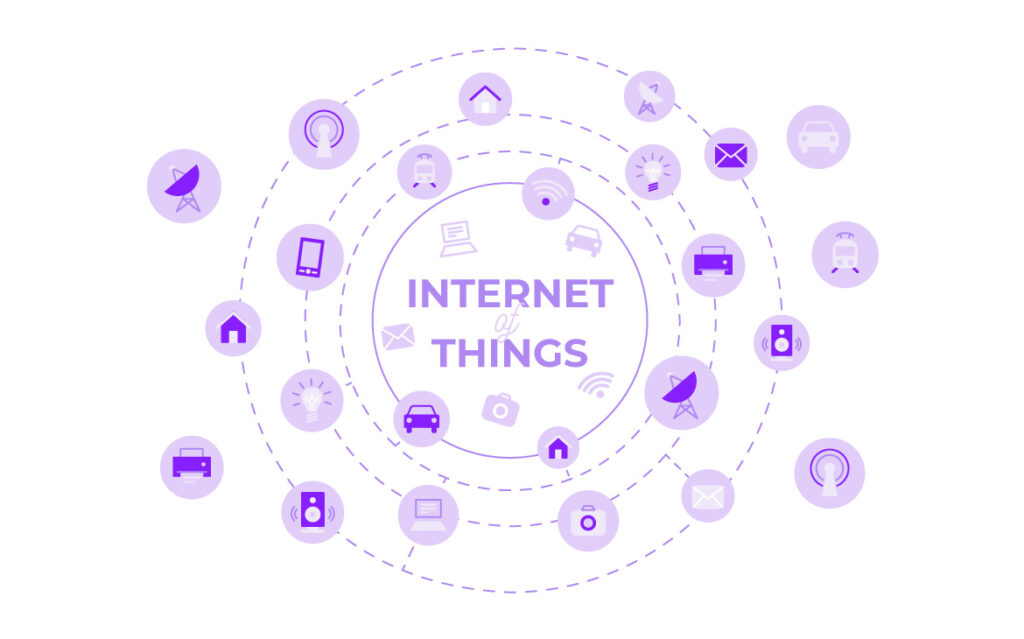
Where to meet today
- Smart Home. Probably, this is the most popular and descriptive example. The smart home concept can include countless items connected to the app on your phone. You can build the whole daily routine with the Internet of Things devices. Imagine, when you turn off the alarm in the morning, the window blinds open automatically. After that, you go into the kitchen and get your freshly-made (automatically, of course) cup from the coffeemaker. What about watering your garden? Well, soil moisture sensors got it under control – when actuators signal the low moisture level, the sprinklers turn on automatically. And on top of that, here goes the trick that we talked about previously – you can control all your IoT home appliances in a mobile application from any distance.
- Smart Cities. Let’s scale! Why have only Smart houses if we can have Smart cities? Garbage cans with filling sensors, transport with movement sensors, transport routes based on the people’s movement around the city data, video surveillance, noise and pollution sensors – all the Internet of Things methods make cities safer and much more comfortable.
- Smart Healthcare. This example ideally explains why the Internet of Things is important. Smart healthcare is one of the best helping tools for medics, especially in heavy workload times. There are so many devices on the market: smartwatches, biosensors, smart shoes, rings – each of them has specific features like ECG monitoring, blood pressure or oxygen measurements, temperature, etc. Medical IoT devices allow not only preventing serious complications but also save lives since the system reminds people to do their tests and notifies doctors if something is wrong with them.
How has the Internet of Things impacted business?
We cleared up the whole concept of the Internet of Things, as well as referred to some examples. But now you’re probably asking yourself – how has the Internet of Things impacted business; which industries can use the IoT hardware? Well, almost anyone. The Internet of Things concept is helpful for any industry where you can automate something – transportation, retail, farms, construction, healthcare, logistics – the list goes on and on. IoT is beneficial if there is a need for remote monitoring or data collection for detailed analysis. The Internet of Things has impacted business immeasurably. It simplifies and automates the processes, analyzes vast amounts of data, and as a result, improves B2C, B2B, and even M2M relationships.
We’re only at the start of the Internet of Things revolution, and we don’t even know yet how many possibilities it can open up for businesses. But we know for sure that IoT is a large-scale process, and any business needs to learn about it – or even try to implement it!
